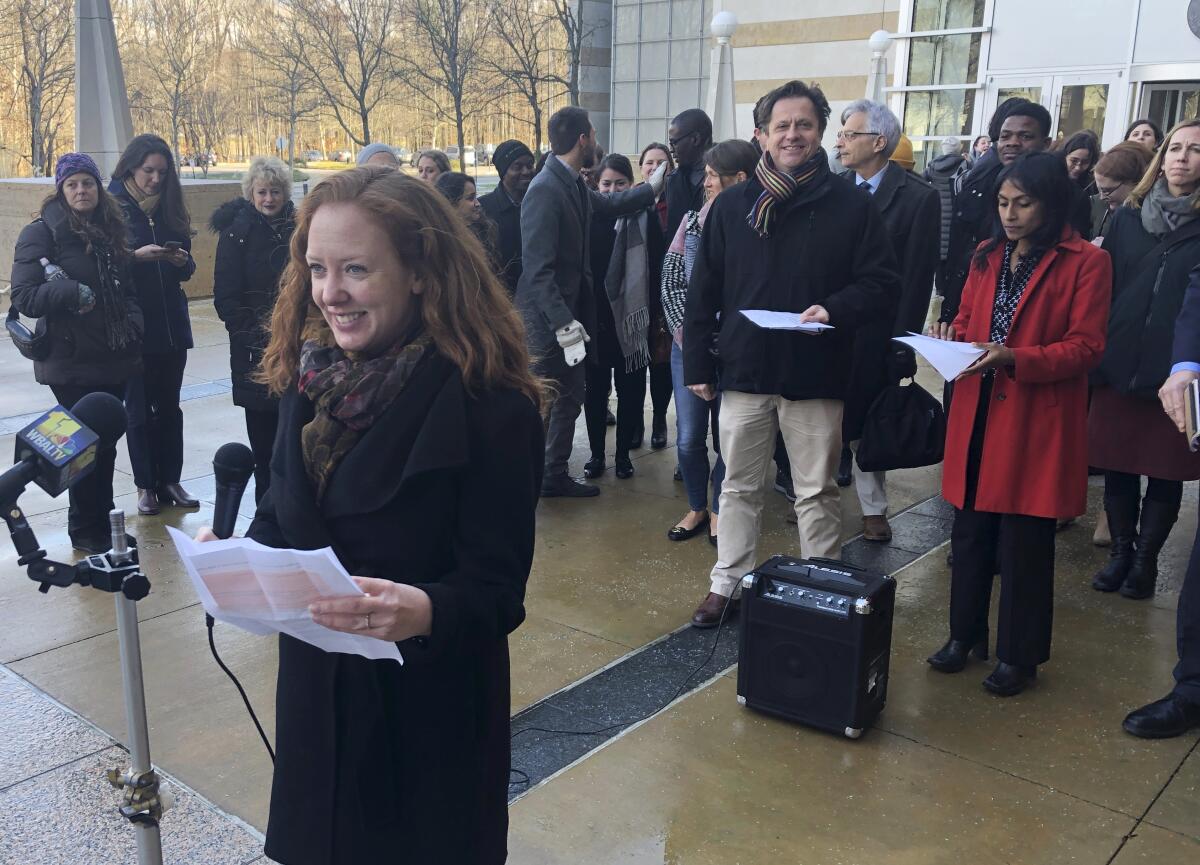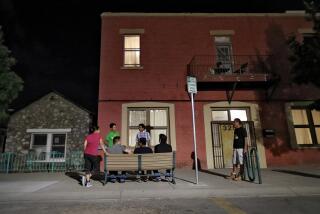Trump can’t let states, localities ‘veto’ refugee resettlement, judge rules

SILVER SPRING, Md. — President Trump can’t give state and local governments “veto power” to reject refugees from resettling within their borders, a federal judge ruled Wednesday.
U.S. District Judge Peter Messitte agreed to block Trump’s executive order requiring resettlement agencies to get written consent from state and local officials in any jurisdiction where they want to resettle refugees beyond June.
In his 31-page ruling, Messitte said the agencies are likely to succeed in showing that November’s executive order is unlawful because it gives state and local governments veto power over the resettlement of refugees. The judge issued a preliminary injunction requested by three resettlement agencies that sued to challenge the executive order.
Messitte concluded Trump’s order doesn’t appear to serve the “overall public interest.”
“Refugee resettlement activity should go forward as it developed for the almost 40 years before [the executive order] was announced,” he wrote.
The administration didn’t immediately say whether it will appeal Messitte’s decision. The State Department said it is reviewing the decision and has no immediate comment.
Church World Service, the Lutheran Immigration and Refugee Service and HIAS — a Jewish nonprofit — filed the lawsuit in Greenbelt, Md., on Nov. 21. They are three of the nine national organizations that have agreements with the federal government to provide housing and other services for refugees. The agencies argued the order illegally conflicts with the 1980 Refugee Act.
Texas, which took in more refugees than any other state during the 2018 fiscal year, became the first state known to reject the resettlement of new refugees. Gov. Greg Abbott said in a letter released Friday that Texas “has been left by Congress to deal with disproportionate migration issues resulting from a broken federal immigration system.”
The head of the Lutheran Immigration and Refugee Service, Krish O’Mara Vignarajah, said the ruling puts on hold a policy that was causing “irreparable harm to refugee families and resettlement agencies already.” She added that it essentially reopens the door to refugees being resettled in Texas.
“It’s a significant day in which the rule of law won,” O’Mara Vignarajah said.
So far, 42 states have publicly agreed to accept refugees, but a governor’s decision wouldn’t preclude local officials from refusing to give their consent. For instance, the Democratic mayor of Springfield, Mass., has refused to give written consent for refugees to be resettled in the city.
Trump’s order says his administration acted to respect communities that believe they do not have the jobs or other resources to be able to take in refugees. Refugees have the right to move anywhere in the U.S. after their initial resettlement, but at their own expense.
John Wittman, a spokesman for Gov. Abbott, did not immediately respond to messages seeking comment on Wednesday’s ruling.
Mark Hetfield, the head of HIAS, estimated about 1,800 refugees this year will be resettled in Texas, where most have family members already, unless the Trump administration appeals the ruling and wins. Mayors from the state’s major cities have welcomed them.
Ali Al Sudani, chief programs officer for Interfaith Ministries for Greater Houston, said many refugees were anxious after Abbott’s announcement. One Iraqi man contacted Al Sudani to say that he was in the process of being approved to go to Texas and asked whether he should request another state instead.
“It’s great news, but we don’t want this to polarize different communities even further,” Al Sudani said. “I hope and wish that everyone would come and see the fact that this is the right thing to do.”
During a Jan. 8 hearing, Justice Department attorney Bradley Humphreys said the Refugee Act gives the president “ample authority” to make such a change.
“Why change it now?” Messitte asked. “Is it purely a political thing?”
Humphreys said the executive order is designed to enhance the involvement of state and local officials in the process of resettling refugees. But he insisted it doesn’t give them a veto over resettlement decisions.
Messitte said it “borders on Orwellian Newspeak” for the administration to claim that the order is meant to merely “enhance the consultation” between the federal government and the states and localities.
“It grants them veto power. Period,” he wrote in his order.
And giving that veto power to state and local governments “flies in the face of clear Congressional intent,” the judge concluded.
The Trump administration has capped the number of refugee admissions at 18,000 for the current fiscal year. About 30,000 refugees were resettled in the U.S. during the last fiscal year; between 150,000 and 200,000 remain in the pipeline for possible U.S. resettlement while they live abroad, according to plaintiffs’ attorney Linda Evarts, of the International Refugee Assistance Project.
More to Read
Sign up for Essential California
The most important California stories and recommendations in your inbox every morning.
You may occasionally receive promotional content from the Los Angeles Times.










